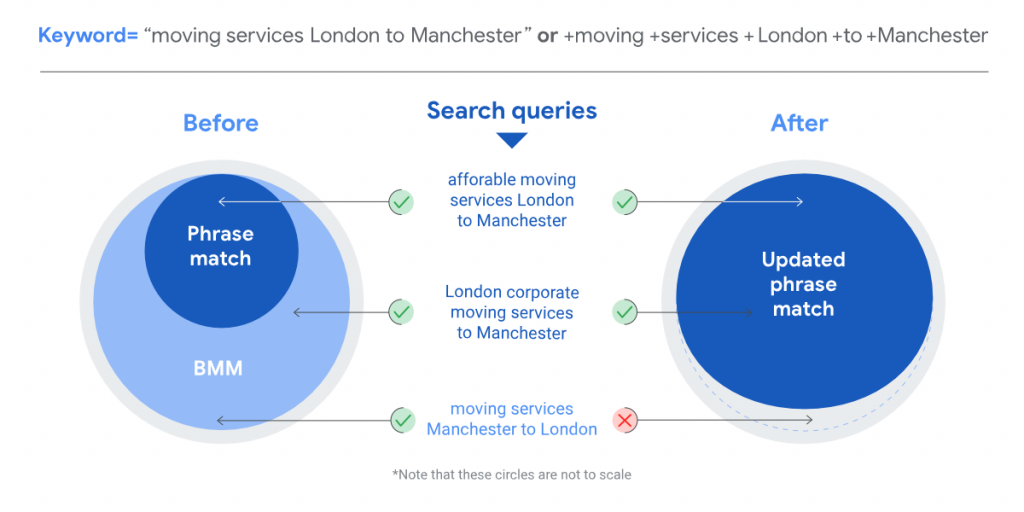Google has started to add a 2% digital service tax to Google Ads spend in the UK, but what does this mean for your business in terms of its digital marketing budget and expected ROI?
If you haven’t heard the news already, Google introduced country-specific fees to its advertising services on 1 November 2020. These Regulatory Operating Costs or Digital Service Tax (DST) Fees, as they are being called, are being charged in addition to the advertising cost every time an advert is served in certain countries. The rationale behind these additional costs is that they are required ‘due to significant increases in the complexity and cost of complying with regulations.’ In the UK the DST fee is 2% of Ad spend, but what does this mean for your paid search strategy as a whole?
In this article, we will explore how the fees are charged, what this means for your budgets and how this will affect your KPIs when analysing the success of your Google Ads campaigns.
How are Google DST Fees in the UK charged?
According to Google, these fees are ‘on your invoice or statement as a separate line item per country. They are also displayed in the ‘Transactions’ section of your Google Ads account.’ However, how you are charged for the fees is dependent on how you pay;
Monthly invoicing or automatic payments
If you pay through monthly invoicing or automatic payments, these fees are added in addition to your account budget. For example, if you have a budget of £100 and accrue £2 in DST Fees for Ads in the UK, you’ll be billed £102.
If registered for VAT, we are assuming the usual process for Google Ads applies i.e. Google will invoice you without charging the VAT, but will note that the reverse charge system is being used on their invoice.
Manual payments
If you pay through manual payments, these fees may be charged after your payment has been fully spent. Therefore, you may be left with an open balance that will be automatically deducted from your next prepayment. For example, if you accumulate £2 of DST fees for Google Ads from a £100 spend for the previous month, and you make a new payment for £100, you would have £98 credit towards displaying Ads (£100 – £2). Therefore, your available balance would show as £98.
How will the Google DST fee affect your paid search strategy?
The introduction of the DST fee may affect your paid search or PPC strategy in two ways;
- Google Ads budget
- Key performance indicators (KPIs)
How the fees will affect these two factors will be determined by your approach. We have used real data from one of our clients (who will remain anonymous) to demonstrate how these factors will be affected.
Absorb the DST Fee into your Google Ads budget
In terms of the management of the fee, if the fee is absorbed into the set budget i.e. if your Google Ads budget is £100 sticking to a £100 spend including the fee, this is how our client’s stats for a month would have been affected if the fee was included.
For the above, the fee has been absorbed into the monthly budget (a reduction in Ad spend of £51.49) and we assume that the cost-per-click CPC, conversion rate and AOV would be the same.
As you can see, the reduction in Ad spend has reduced the number of clicks by 245 (-2.00%) which has in turn reduced the number of transactions by 11. If the AOV is £37.91 this equates to a reduction in revenue of £414.35 (-2.00%).
As spend and revenue have both dropped by 2%, the ROI remains at 8.13 i.e. generated revenue is 8.13 times more than the Google Ads spend (including the fee).
The revenue minus the spend is £17,986.17.
Increasing the Google Ads budget to include the fee
In this scenario. if there is a Google Ads budget of £100, an additional £2 (2% fee) is added to the budget to make it £102 so that the actual spend on Ads remains the same. This is how our client’s stats for a month would have been affected in terms of this scenario.
For the above, the fee has been added to the monthly budget (an additional £51.49 on top of the budget for the 2% fee) and we assume that the conversion rate and AOV are the same. The CPC is affected slightly as the number of clicks is divided by a budget which has been increased by 2%, but not significantly. CPC remains at 0.21 to 2 decimal places.
As you can see, most factors remain the same but the increase in spend by 2% increases clicks and transactions. The revenue generated minus the fee and spend is £18,655.29.
In conclusion
By including the Google fee upfront and using it to generate additional clicks would have potentially made our client an additional £669.11 of revenue (scenario 1 generated £17,986.17 compared to £18,655.29) once the fee is removed at month end. It is worth pointing out that more clicks may not necessarily occur if sufficient budget is already being spent within each campaign, but if campaigns are ‘limited by budget’ then investing the fee upfront is potentially worthwhile.
Further information regarding the fees can be found here. However, if you wish to discuss how Agency51 can help optimise your paid search strategy then please do not hesitate to contact us.
































